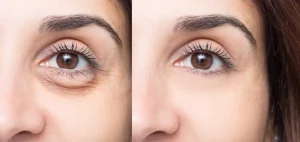In recent years, peptide therapy has surged in popularity among men in New York City, driven by growing interest in non-invasive solutions for performance, recovery, and longevity. Clinics across Manhattan now offer peptide protocols tailored to muscle growth, fat loss, and hormonal balance — marketed as alternatives to more aggressive interventions like anabolic steroids or traditional hormone replacement therapy (HRT).
According to a 2023 market analysis published by Grand View Research, the global peptide therapeutics market was valued at $48.7 billion in 2022 and is expected to grow at a compound annual growth rate (CAGR) of 6.3% from 2023 to 2030【source: Grand View Research, ID 978-1-68038-869-2】. While much of this market is driven by cancer and metabolic disease therapies, the off-label clinical use of peptides for men’s health and anti-aging has gained momentum in urban centers like NYC, particularly among working professionals aged 35–55 seeking edge-enhancement therapies.
While some peptides are indeed experimental or not FDA-approved for aesthetic or performance purposes, others have documented clinical roles such as Tesamorelin; a growth hormone-releasing factor analog, is FDA-approved for the treatment of HIV-associated lipodystrophy, with studies showing significant reduction in visceral adipose tissue (VAT) after 26 weeks of use【Source: Falutz et al., New England Journal of Medicine, 2010; DOI: 10.1056/NEJMoa0909747】.
In short, peptides are not “snake oil” but nor are they one-size-fits-all. As awareness grows and men seek customized, medically monitored alternatives to traditional HRT, peptides have become a serious option in NYC’s competitive, longevity-focused health culture.
What are peptides? (and why men are turning to them)
Peptides are short chains of amino acids between 2 and 50 that serve as messenger molecules, instructing various biological processes in the body. Unlike proteins, which are longer and more complex, peptides are structurally simpler and faster-acting, often mimicking or amplifying signals the body already produces.
Think of peptides as your body’s push notification system; they tell cells when to grow, repair, release hormones, or reduce inflammation. This makes them useful in therapies aimed at muscle recovery, fat metabolism, sexual function, and cellular aging.
From a biochemical standpoint, peptides can act as:
- Hormone analogs (e.g., growth hormone-releasing peptides like CJC‑1295 or Sermorelin)
- Neurotransmitters (e.g., PT‑141 acting on melanocortin receptors)
- Signaling regulators (e.g., BPC‑157 for tissue healing)
Some peptides used in men’s health are bio-identical, meaning they replicate naturally occurring peptides in the human body such as Sermorelin is a synthetic analog of growth hormone-releasing hormone (GHRH), used to stimulate the body’s own production of growth hormone. A 2001 clinical study published in Experimental Gerontology found that Sermorelin increased IGF-1 levels and promoted improved sleep and lean body mass in older adults when administered consistently over several weeks【Source: Walker et al., 2001; DOI: 10.1016/S0531-5565(00)00178-2】.
Another reason men are turning to peptides is their targeted nature and lower risk profile compared to full hormone replacement therapies (HRT). Instead of introducing high-dose testosterone or exogenous growth hormone, peptides aim to nudge the body’s own endocrine system to function more effectively.
As a result, peptides have become a sought-after option for men looking to optimize recovery, counteract age-related decline, or enhance performance especially when supervised in a clinical setting.
Which peptides are best for men (muscle, fat loss, libido, recovery)?
When men explore peptide therapy, it’s rarely because they’re curious about the science alone — they’re looking for results. That’s why we’ve organized this section by goal, not molecule. Below are the top peptides commonly used in clinical settings for men’s performance, recovery, and longevity.
| Goal | Peptide(s) | Target Outcome |
| Muscle/Recovery | CJC‑1295, Ipamorelin, MK‑677 | Lean mass, GH release |
| Fat Loss | Tesamorelin, AOD‑9604, Tirzepatide | Visceral fat, metabolism |
| Libido | PT‑141, Oxytocin | Sexual arousal, neurological libido |
| Injury Repair | BPC‑157, TB‑500 | Soft tissue repair, inflammation |
| Energy & Focus | NAD+, MOTS-c | Mitochondrial health, clarity |
For Muscle Growth & Recovery
Peptides: CJC‑1295, Ipamorelin, MK‑677
- CJC‑1295 and Ipamorelin are growth hormone secretagogues that stimulate the pituitary to release more endogenous GH and IGF-1.
- Clinical data shows that these peptides, when combined, may support increased lean body mass, enhanced recovery, and improved sleep quality, all linked to higher GH levels【Source: Ernst & Pompano, JCI Insight, 2020; DOI: 10.1172/jci.insight.137658】.
- MK‑677 (Ibutamoren) is an orally active GHS that mimics ghrelin. Studies have shown it increases IGF-1 levels by up to 60% and promotes lean mass gains in older men【Source: Nass et al., J Clin Endocrinol Metab, 2008; DOI: 10.1210/jc.2007-0619】.
Best for: Men over 35 experiencing strength plateaus, recovery delays, or GH decline.
For Fat Loss & Metabolism
Peptides: Tesamorelin, AOD‑9604, Tirzepatide (GLP-1 agonist)
- Tesamorelin is FDA-approved to reduce visceral adipose tissue (VAT) in HIV-associated lipodystrophy, but its fat-burning effects also appear in non-HIV populations【Source: Falutz et al., NEJM, 2010; DOI: 10.1056/NEJMoa0909747】.
- AOD‑9604 is a modified fragment of human GH (176–191) shown in animal and early human trials to enhance lipolysis without altering blood sugar or cortisol【Source: Ng et al., Obesity Research & Clinical Practice, 2013】.
- Tirzepatide, while technically a GLP-1/GIP agonist, is now frequently stacked with peptides in clinical practice to accelerate fat loss and appetite control.
Best for: Men with stubborn belly fat, insulin resistance, or metabolic syndrome.
For Libido & Sexual Performance
Peptides: PT‑141, Oxytocin
- PT‑141 (Bremelanotide) works on the melanocortin system, enhancing sexual arousal and performance. Unlike PDE5 inhibitors (like Viagra), PT‑141 targets neurological arousal, not just blood flow. It’s FDA-approved for hypoactive sexual desire in women but used off-label for men【Source: Safarinejad et al., J Sex Med, 2010; DOI: 10.1111/j.1743-6109.2010.01912.x】.
- Oxytocin, known as the “bonding hormone,” is used off-label in men to enhance mood, touch sensitivity, and orgasmic response.
Best for: Men with performance anxiety, low libido, or poor arousal response to PDE5s.
For Injury Repair & Inflammation
Peptides: BPC‑157, TB‑500
- BPC‑157 is derived from a protein in human gastric juice. Animal studies consistently show it accelerates healing of ligaments, tendons, and the gut lining【Source: Sikiric et al., Curr Pharm Des, 2011; PMID: 21247425】.
- TB‑500 (Thymosin Beta‑4) promotes angiogenesis and cell migration, helping repair damaged soft tissue and muscle microtears.
Best for: Men rehabbing sports injuries, tendonitis, or post-surgical recovery.
Note: Both BPC-157 and TB-500 are not FDA-approved for human use and are banned by WADA.
For Energy, Focus & Cellular Repair
Peptides: NAD+, MOTS-c
- NAD+ (Nicotinamide adenine dinucleotide) isn’t technically a peptide but is included in many IV protocols. It fuels mitochondrial function, enhances mental clarity, and may reduce cellular aging markers【Source: Trammell et al., Cell Metabolism, 2016】.
- MOTS-c is a mitochondrial-derived peptide that may improve insulin sensitivity and endurance, though most human trials are still emerging.
Best for: Men over 40 with fatigue, brain fog, or looking for longevity-focused biohacking.
Are peptide injections safe or FDA‑approved?
Peptides can be safe, but it depends on which ones you’re talking about and how they’re used. A few, like Tesamorelin (approved for treating fat gain in HIV patients) and PT-141 (approved for sexual desire issues in women), have passed FDA review and are considered safe in those specific situations.
Many of the peptides promoted for men’s health such as CJC-1295, Ipamorelin, MK-677, or BPC-157 are not FDA-approved for anti-aging or performance. Some research shows they may help with muscle, fat loss, or recovery, but the long-term safety in humans isn’t clear.
The biggest risks usually come from buying peptides online, where products may be impure or mislabeled. Side effects like swelling, joint pain, or hormone changes are also possible.
Peptide safety checklist
Before starting peptide therapy, make sure these boxes are ticked:
- Doctor oversight: You’ve had a consultation with a licensed physician, not just an online order form.
- Legit pharmacy: The clinic uses a 503B or other FDA-registered compounding pharmacy, not a random website.
- Lab testing: Baseline and follow-up bloodwork are included (e.g., hormone panels, IGF-1 checks).
- Clear purpose: The peptide being suggested matches a real goal (muscle, fat loss, libido, recovery) and isn’t a “miracle fix.”
- FDA awareness: You’ve been told which peptides are FDA-approved, and which are off-label or experimental.
- Side effects explained: The provider has talked through possible risks like swelling, joint pain, or changes in metabolism.
- Follow-up plan: There’s a clear roadmap for monitoring, dosage adjustments, and when to stop.
What are the benefits of peptide therapy
- Peptides can support muscle growth and faster recovery by stimulating natural growth hormone release.
- Some peptides, such as Tesamorelin, may improve fat metabolism and reduce visceral fat.
- Certain options including PT-141 and oxytocin have been linked to improvements in libido and sexual performance.
- Experimental peptides like BPC-157 and TB-500 are associated with faster healing of tendons, ligaments, and soft tissues.
- NAD+ and MOTS-c may enhance mitochondrial energy production, contributing to better focus and overall vitality.
- Peptide protocols are sometimes used to counter age-related decline by encouraging the body’s own hormone balance.
Risks and side effects of peptides
- Injections may cause redness, swelling, or mild irritation at the site of administration.
- Hormonal changes such as shifts in IGF-1, cortisol, or appetite levels can occur depending on the peptide.
- Some peptides, like MK-677, have been linked to water retention or insulin resistance in certain users.
- Long-term safety data is limited for popular compounds such as BPC-157 and TB-500.
- Many performance-related peptides remain banned in sports and are not FDA-approved for anti-aging purposes.
Best peptides for men
| Age Group | Peptides | Primary Goals | Key Considerations |
| Men over 30 | BPC-157 (injury recovery, off-label), CJC-1295 + Ipamorelin (GH secretagogues, off-label), NAD+ | Faster recovery, performance boost, injury healing | Most men in their 30s still produce healthy hormone levels. Peptides may be more relevant for athletes or those with chronic injuries. |
| Men over 40 | CJC-1295 + Ipamorelin, MK-677, Tesamorelin (Rx for VAT), PT-141 (libido, off-label), NAD+ | Energy, recovery, abdominal fat reduction, improved sleep, libido | Natural hormone decline often begins here. Lab testing for IGF-1, testosterone, and metabolic health is essential before protocols. |
| Men over 50 | Tesamorelin (FDA-approved for HIV-lipodystrophy, studied for VAT), Sermorelin (off-label GH analog), PT-141, NAD+, GLP-1 agonists (semaglutide/tirzepatide as adjuncts) | Visceral fat loss, maintaining lean mass, libido support, energy | Cardiometabolic risks rise; focus on peptides with proven fat-loss or recovery benefits. Medical supervision is critical. |
| Men over 60 | Sermorelin or Ipamorelin (off-label GH secretagogues), NAD+, PT-141 | Sarcopenia prevention, vitality, sleep support, sexual function | Conservative dosing emphasized. Combine with strength training and nutrition. Monitor for side effects. |
| Men over 70 | NAD+, PT-141 (case-by-case), low-dose GH secretagogues (with close supervision) | Quality of life, cognitive clarity, sexual health, mobility | Safety first. Many benefit more from lifestyle + targeted peptides rather than aggressive protocols. Must coordinate with primary care and specialists. |
Best peptide stacks for health and longevity
| Stack Combination | Primary Goal | Synergy / How It Works |
| BPC-157 + TB-500 | Injury recovery, tendon & ligament healing | BPC-157 promotes angiogenesis and gut/tissue repair; TB-500 aids cell migration and wound healing |
| CJC-1295 + Ipamorelin + Sermorelin | GH boost, muscle gain, fat loss, better sleep | Multiple GH secretagogues stimulate pituitary GH release, raising IGF-1 and improving recovery |
| PT-141 + Oxytocin | Sexual performance, libido, intimacy | PT-141 enhances neurological arousal via melanocortin system; Oxytocin supports bonding, mood, orgasm intensity |
| Tesamorelin + GLP-1 (Semaglutide/Tirzepatide) | Visceral fat reduction, weight management | Tesamorelin reduces VAT, while GLP-1s control appetite and improve insulin sensitivity |
| NAD+ + MOTS-c | Energy, cognitive clarity, longevity | NAD+ fuels mitochondrial energy production; MOTS-c improves insulin sensitivity and endurance |
How to maximize results from peptide therapy
- Follow a consistent dosing schedule as directed by your provider, since peptides work best with steady use over weeks or months.
- Pair therapy with strength training and resistance exercise to support lean muscle growth and prevent sarcopenia.
- Focus on nutrition that balances protein, healthy fats, and micronutrients to enhance recovery and hormonal signaling.
- Prioritize quality sleep, as growth hormone release and tissue repair peak during deep sleep cycles.
- Manage stress with practices such as meditation or breathwork, since high cortisol can blunt peptide effectiveness.
- Complete regular lab work to monitor IGF-1, hormone levels, and metabolic markers, adjusting protocols as needed.
How much does peptide therapy cost in NYC?
Peptide therapy cost $100 to $300 per session in Manhattan, NYC, depending on the peptide used and whether it’s administered as an injection or iv drip.
Peptides vs testosterone therapy vs HGH
| Therapy | How it Works | Benefits | Considerations |
| Peptides | Stimulate the body to release its own hormones | Support recovery, fat loss, libido, injury repair | Many are off-label, results may be slower, long-term safety data limited |
| Testosterone Therapy | Provides exogenous testosterone directly | Increases energy, libido, muscle mass | May suppress natural production, requires monitoring for cardiovascular and prostate health |
| HGH (Human Growth Hormone) | Direct injection of growth hormone | Promotes muscle gain, fat reduction, recovery | FDA-approved only for specific conditions, carries higher risk of side effects and WADA bans |
Do peptides increase growth hormone safely vs. HGH?
Yes, peptides like CJC-1295, Ipamorelin, and Sermorelin can stimulate the body to release growth hormone more naturally, making them generally considered safer than taking synthetic HGH directly, though their long-term safety is still less well studied.
Frequently Asked Questions
Are peptides legal for athletes / banned by WADA?
Many performance-related peptides, such as BPC-157 and growth hormone secretagogues, are banned by WADA, so athletes should assume they are not legal for competition use.
How fast do peptides work?
Some peptides work within hours (e.g., PT-141 for libido), while others like CJC-1295, Ipamorelin, or Tesamorelin may take several weeks of consistent use to show results.
Can I buy peptides online legally?
Most peptides marketed online as “research chemicals” are not legally approved for human use; safe, legal access comes only through a licensed clinic or pharmacy.
Do I need a prescription?
Yes, most therapeutic peptides require a prescription from a licensed medical provider for legal and supervised use.
Are peptides better than testosterone therapy?
Peptides and testosterone therapy work differently; peptides stimulate the body to produce more of its own hormones, while testosterone therapy provides hormones directly. Neither is universally better, as the choice depends on age, goals, and medical profile.
How long should you stay on peptides?
Most peptide protocols last several months, often 3 to 6 months, with regular monitoring to decide if continuation is safe and effective.
Do peptides really work for anti-aging?
Some peptides show benefits linked to anti-aging, such as improved muscle recovery, fat metabolism, and energy, but research is still limited and results vary between individuals.
Are peptides safe for long-term use?
The long-term safety of peptides is not well established; FDA-approved peptides are safe within their approved uses, but many popular peptides lack extensive human studies for prolonged use.

About The Author
Dr. Syra Hanif M.D.
Board Certified Primary Care Physician
Dr. Hanif is the Director of Aesthetic Medicine. She is a board-certified physician in Aesthetic Medicine who specializes in using non-surgical alternatives in order to enhance one's appearance through Botox and fillers.
Read More











